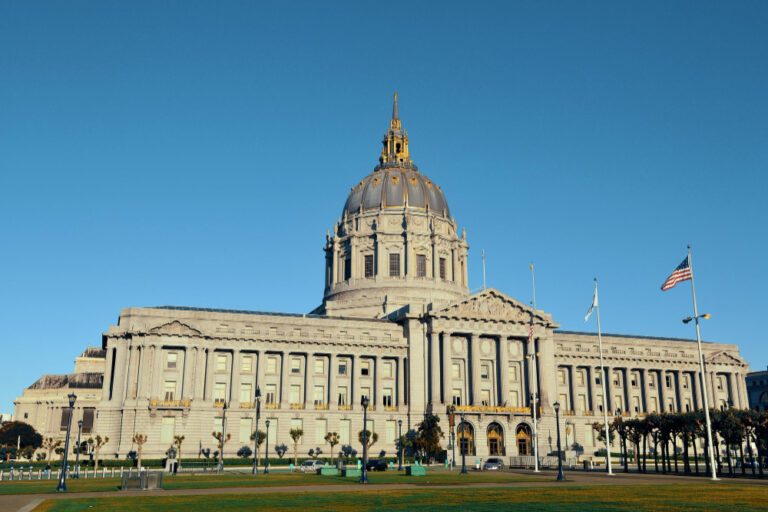Why People Attend Trump Rallies: Exploring Motivations and Mindsets
Step right up and join the spectacle! Strap in for a wild ride through the mind of Donald J. Trump and those who flock to his rallies in droves. Love him or loathe him, there’s no denying that Trump has an uncanny ability to captivate crowds, stir controversy, and dominate headlines like no other. In this riveting exploration, we delve deep into the motivations and mindsets of those who attend Trump Rallies. From his fiery anti-immigrant rhetoric to his unsettling admiration for dictators. we’ll decipher why people are drawn to this political phenomenon. So buckle up, folks – it’s time to uncover the secrets behind the allure of a Trump rally!
Trump’s Anti-Immigrant Rhetoric and its Impact
The power of words should never be underestimated, especially when it comes to politics. Donald Trump knows this all too well. His relentless anti-immigrant rhetoric has become a defining characteristic of his political career, shaping public opinion and sparking heated debates across the nation.At one of his infamous rallies in New Hampshire, Trump declared, “When Mexico sends its people, they’re not sending their best…
They’re bringing drugs. They’re bringing crime they are rapists.” These biting words struck a chord with many who believe that immigration poses a threat to national security and economic stability. The impact? An energized base standing firmly behind him as he promised to build a border wall and crack down on undocumented immigrants.
But Trump’s divisive remarks have not come without consequences or controversy. Critics argue that his inflammatory language promotes xenophobia, fosters division within communities, and perpetuates harmful stereotypes about immigrants. Amidst cries for unity and compassion, these comments have ignited passionate backlash from individuals advocating for more inclusive policies towards immigrants.
Quotes from Trump’s New Hampshire Rally
At Trump’s New Hampshire rally, his rhetoric was as fiery as ever. He didn’t hold back in expressing his views on immigration, making headlines with statements like “We have people coming into our country that are criminals, drug dealers, rapists.” These provocative remarks stirred up both applause and controversy among attendees.
But it wasn’t just immigration that dominated Trump’s speech. He also took aim at his political opponents, particularly Joe Biden. Trump stated, “Biden is weak. He can’t even remember what state he in half the time. These jabs at his rivals were met with cheers from the crowd. Who relished in seeing their leader take on the establishment.
Trump’s words at the New Hampshire rally reflected his unapologetic style and willingness to say what others may deem politically incorrect or divisive. Whether you agree with him or not, there is no denying that these rallies serve as a platform for him to connect with supporters who appreciate his directness and refusal to conform to traditional political norms.
Backlash and Controversies Surrounding Trump’s Rhetoric
The impact of Trump’s anti-immigrant rhetoric has not been without its fair share of backlash and controversies. Critics argue that his inflammatory language perpetuates fear, division, and even hatred among different communities. They point to instances where his statements have been interpreted as endorsing violence or discrimination against marginalized groups.
Trump’s remarks about Mexican immigrants being criminals and rapists stirred up a storm of controversy during his 2015 campaign announcement. This led to businesses severing ties with him, organizations boycotting his properties, and individuals expressing their outrage on social media. Similarly, comments suggesting a ban on all Muslims entering the United States faced widespread criticism from both domestic and international audiences for promoting religious discrimination.
These controversies surrounding Trump’s rhetoric highlight the deep divide in public opinion regarding his approach to addressing issues such as immigration and national security. While some supporters may view these statements as bold stands against political correctness or a genuine concern for protecting American interests, others see them as divisive attempts to appeal to xenophobic sentiments within certain segments of the population.
The Appeal of Trump’s Dictator Praises
When it comes to understanding the appeal of Trump’s dictator praises, it is essential to delve into his comments and their impact. Throughout his rallies and speeches, Trump has made numerous statements that have raised eyebrows and sparked conversation. From praising leaders like Kim Jong-un to expressing admiration for Vladimir Putin, these remarks have resonated with a certain segment of his supporters.
For some individuals attending Trump rallies, there may be an allure in seeing a leader who is unapologetic about his praise for strongman figures. They may view these dictators as assertive leaders who get things done without being hindered by political correctness or bureaucracy. This sentiment aligns with the desire for a strong leader who can break through perceived barriers and push forward with their agenda. The appeal lies in the perception of strength and effectiveness exhibited by these authoritarian figures – qualities that some find lacking in traditional politicians.
Trump’s comments on dictators also play into a broader narrative that resonates among certain segments of the population: skepticism towards established institutions and disdain for what they perceive as weakness within democracy itself. By praising dictators, Trump taps into sentiments of frustration with existing systems, promising an alternative approach that can bring about change quickly and decisively. Whether this mindset stems from disillusionment or dissatisfaction with current leadership or simply reflects a desire for disruption remains open to interpretation.
While not all attendees at Trump rallies resonate with his dictator praises. There is undoubtedly a subset of supporters drawn to this aspect of his rhetoric. The combination of admiring strongman leaders as symbolizing strength and effectiveness along with tapping into frustrations with existing democratic structures contributes to its appeal among certain individuals seeking something different in politics.
Analyzing Trump’s Comments on Dictators
When it comes to his comments on dictators, Donald Trump has certainly made headlines. Whether praising their leadership style or downplaying human rights abuses, his statements have sparked both fascination and concern. Some argue that these remarks reflect a willingness to overlook authoritarian tendencies in pursuit of stronger international relationships. Others see them as evidence of a dangerous disregard for democratic values.
Trump’s admiration for leaders like Vladimir Putin and Kim Jong-un is well-documented. He has praised their strength and control over their respective countries, often contrasting it with what he perceives as weakness in American leadership. These comments hint at an attraction to strongman tactics and a belief that centralized power is necessary for effective governance.
However, critics argue that such words undermine the importance of human rights and democracy on the global stage. By expressing admiration for leaders who have been accused of suppressing dissent and violating civil liberties, Trump risks sending the message that autocratic rule can be acceptable or even admirable.
Public reaction to these comments has been mixed, with some supporters interpreting them as bold diplomacy while others express concerns about alignment with oppressive regimes. Historically, world leaders’ praise of dictators has raised alarms among those who value freedom and democracy.
In analyzing Trump’s comments on dictators, it becomes clear that they represent more than just offhand remarks – they reveal a mindset shaped by different priorities than traditional political norms dictate. The implications are significant: understanding this perspective is crucial when trying to comprehend why people attend Trump rallies in support of his unconventional rhetoric
Public Reaction and Historical Alarms
When it comes to the public’s reaction to Trump’s rhetoric, it is a mixed bag. Some fervently support his strong anti-immigrant stance, echoing his sentiments with applause and cheers at his rallies. They see his tough talk as necessary for protecting American jobs and national security. However, there are others who view Trump’s words with alarm, concerned about the potential consequences of such divisive language.
The historical echoes of past leaders who used similar tactics cannot be ignored. Critics argue that Trump’s rhetoric taps into an undercurrent of fear and xenophobia that has surfaced throughout history during times of economic uncertainty or political polarization. This raises concerns about the direction our country may be headed in. If these sentiments continue to gain traction. Public reaction to Trump’s rally speeches reflects the deep divisions within society today – a stark reminder that we still have much work to do in fostering unity and understanding among our citizens.
Exploring the Trump Phenomenon at Reno-Sparks Convention Center
The atmosphere was electric as thousands of supporters gathered at the Reno-Sparks Convention Center, eager to catch a glimpse of their beloved leader. Chants of “Four more years!” echoed throughout the venue, creating a palpable sense of excitement and anticipation.
As Trump took to the stage, his powerful presence commanded attention. He skillfully worked the crowd, delivering his signature fiery speeches that left no room for doubt about his unwavering commitment to “Make America Great Again.” The attendees hung on every word, nodding in agreement and cheering with fervor.
There’s something undeniably captivating about witnessing such an event firsthand. Whether you’re a die-hard supporter or simply curious about this political phenomenon, attending a Trump rally offers an unparalleled experience that leaves a lasting impression. It’s not just about politics; it’s about being part of history in the making – whether you love him or loathe him.
Highlights from the Reno-Sparks Rally
At the Reno-Sparks Convention Center, thousands of enthusiastic supporters gathered to attend one of President Trump’s electrifying rallies. The air was buzzing with anticipation as people from all walks of life came together to show their unwavering support for their beloved leader.
The energy in the room was palpable as President Trump took the stage, captivating the crowd with his charismatic presence and magnetic personality. The atmosphere was electric, with cheers and applause filling every corner of the convention center. It was a sight to behold as thousands of voices joined together in unity, united by their shared admiration for President Trump and his vision for America.
The Reno-Sparks Rally showcased not only the fervor and dedication of Trump supporters but also highlighted the undeniable impact that President Trump has had on American politics. His ability to connect with people on a personal level is unmatched. Drawing them in with his straightforward rhetoric and promises to put America first. This rally served as a powerful reminder that despite ongoing controversies and criticisms, there is an undeniably strong base of support behind Donald Trump.
Comparing Trump’s Rallies and Campaign Speeches
One of the most notable aspects of Donald Trump’s political career has been his ability to draw large crowds at rallies across the country. These events have become somewhat of a spectacle, with thousands of supporters gathering to hear him speak.
In contrast, Trump’s campaign speeches tend to be more focused and scripted. While they still contain his trademark style and rhetoric. They are often delivered in a more controlled setting. This allows him to convey specific messages and policies without the distraction or spontaneity that can come with rally appearances.
Contrasting Trump’s Rhetoric in New Hampshire and Nevada
When it comes to Trump’s rallies, there is no denying that his rhetoric varies from one location to another. A prime example of this can be seen when contrasting. His speeches in New Hampshire and Nevada. In New Hampshire, Trump focused heavily on issues such as immigration and border security, rallying his supporters with promises of a wall and tough policies. On the other hand, at the Reno-Sparks Convention Center in Nevada, he took a different approach.
In Nevada, Trump shifted gears and tailored his message to resonate with the crowd present at the rally. He touched upon a range of topics including jobs creation, economic growth, and trade deals. The change in tone was evident as he highlighted accomplishments during his presidency while also criticizing opponents like Joe Biden. This stark contrast highlights Trump’s ability to adapt his rhetoric based on the location and audience he is addressing – an important factor contributing to why people attend his rallies across the country.
Common Themes and Messages in Trump’s Speeches
In Trump’s speeches, certain themes and messages consistently emerge, resonating with his supporters across the country. One common theme is his strong stance on immigration, which he often presents in a tough and uncompromising manner. He speaks of building a border wall and implementing stricter immigration policies to protect American jobs and security.
Another recurring message is his criticism of political opponents, particularly Joe Biden and what he perceives as the erosion of democracy. Trump portrays himself as a defender of traditional values and institutions while questioning the integrity of the electoral process. This rhetoric strikes a chord with those who feel disenfranchised or disillusioned with the current political landscape.
Trump’s speeches are punctuated by promises to “Make America Great Again”. An appeal to nostalgia for an idealized past where America was supposedly stronger economically, militarily, and culturally. He taps into sentiments of national pride while simultaneously criticizing global trade deals that he believes have hurt American industries.
These consistent themes in Trump’s speeches serve to rally his base around issues they care deeply about: immigration control, preserving traditional values, and restoring perceived economic strength. Whether one agrees or disagrees with these messages, it is clear that they strike a chord with many attendees at Trump rallies.
Understanding the Attraction of Trump’s Message
The appeal of Donald Trump’s message lies in its ability to tap into deep-seated fears and frustrations among a significant portion of the American population. One key aspect that resonates with his supporters is his strong stance against immigration. Trump’s anti-immigrant sentiments strike a chord with those who feel threatened by changing demographics and worry about job security. By emphasizing border control and advocating for stricter immigration policies, he presents himself as a champion for their concerns.
Another factor contributing to the attraction of Trump’s message is his criticism of Joe Biden and democracy itself. Through his relentless attacks on Biden, questioning his mental acuity and raising doubts about the legitimacy of the 2020 election, Trump appeals to individuals who share his distrust in traditional political institutions. These supporters feel disillusioned by what they perceive as a corrupt system that prioritizes elites over everyday Americans.
In both cases, it is important to recognize that understanding why people attend Trump rallies requires delving into complex individual motivations and mindsets rather than making sweeping generalizations. By examining these elements within the broader context of societal trends.
The Appeal of Anti-Immigrant Sentiments
One of the key reasons why people attend Trump rallies is the appeal of his anti-immigrant sentiments. For some, these sentiments resonate with their own fears and concerns about immigration and its impact on jobs, security, and cultural identity. They see Trump as someone who will take a tough stance on immigration, protecting American interests first.
Trump’s rhetoric around building a wall along the Mexican border and implementing stricter immigration policies has struck a chord with those who believe that strong borders are necessary to safeguard national sovereignty. They see his stance as a way to address what they perceive as threats posed by undocumented immigrants taking jobs away from Americans or contributing to crime rates. This narrative taps into long-standing anxieties about economic competition and changing demographics, giving people a sense of validation for their concerns.
Additionally, there are those who view immigrant communities as potential sources of terrorism or cultural dilution. They find solace in Trump’s promises to crack down on illegal immigration and tighten vetting processes for refugees and asylum seekers. These individuals may have genuine worries about national security but also might harbor xenophobic tendencies that align with Trump’s hardline approach.
In short, the appeal of anti-immigrant sentiments at Trump rallies lies in addressing deep-rooted fears surrounding job loss, crime rates, cultural changes, and national security concerns linked to immigration. While critics argue that these views can be discriminatory or based on misinformation, it is important to understand the underlying motivations behind attendees’ support for such positions without endorsing them ourselves.
Examining Trump’s Criticism of Biden and Democracy
One of the key aspects that draws people to Trump rallies is his relentless criticism of Joe Biden and his stance on democracy. In fiery speeches, Trump doesn’t hold back when it comes to criticizing his political opponent. He often highlights what he perceives as flaws in Biden’s policies, leadership style, and commitment to democratic values.
Trump accuses Biden of being weak on important issues such as immigration, foreign policy, and economic growth. According to him, Biden’s approach threatens the very foundation of American democracy. This critique resonates with many attendees who share similar concerns about the direction in which they believe the country is heading under Democratic leadership.
In addition to criticizing Biden’s policies, Trump also questions the integrity of American democracy itself. He repeatedly claims that the 2020 presidential election was rigged. Against him and argues that there were widespread instances of voter fraud.
The combination of intense criticism towards Biden and skepticism about the democratic system creates an emotional appeal for those attending Trump rallies. It taps into their fears and frustrations while reinforcing their belief in Trump as a strong leader who will fight for their interests.
The Connection Between Trump and his Supporters
The connection between Donald Trump and his supporters is a complex phenomenon. That cannot be easily dismissed or generalized. While it is clear that not all attendees at Trump rallies share the same motivations and mindsets, there are certain common threads that bind them together.
One of the key factors behind the strong bond between Trump and his supporters is their shared belief in his ability to challenge established norms and disrupt the status quo. Many see him as a political outsider who is willing to fight against what they perceive as an elitist establishment. His brash style, unfiltered rhetoric, and unconventional approach resonate with those who feel marginalized or unheard by mainstream politicians.
Another important aspect of this connection lies in the sense of identity that Trump provides for his supporters. By championing populist causes such as immigration control, economic protectionism, and American exceptionalism, he taps into deep-seated fears and aspirations within certain segments of society. For some, attending a Trump rally becomes an affirmation of their own values and beliefs.
Furthermore, it would be remiss not to acknowledge the role played by media dynamics in fostering this connection. The polarized nature of today’s media landscape has created echo chambers where like-minded individuals can reinforce their beliefs without much exposure to opposing viewpoints. This reinforces group solidarity among Trump’s base while further alienating them from those who disagree with them.Love him or loathe him – one thing remains undeniable: Donald Trump possesses an unparalleled ability to captivate crowds through fiery speeches delivered on campaign trails across America.






